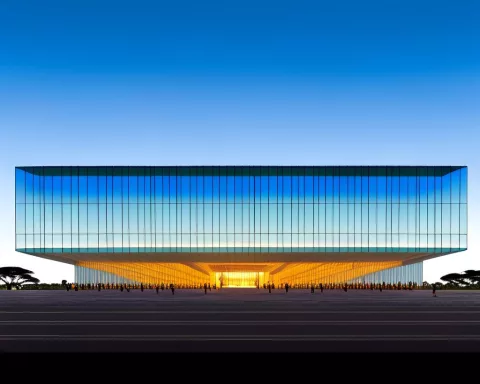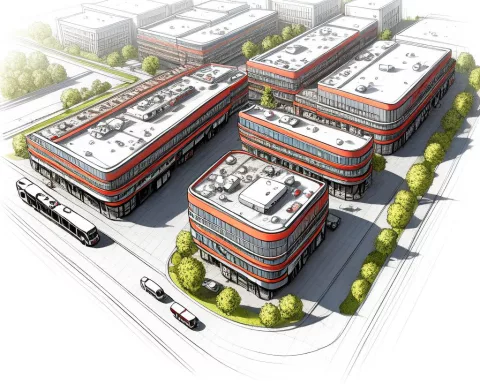Citizens in East London gathered to witness and participate in the special committee on the General Intelligence Laws Amendment Bill. Many expressed support for reactivating the South African National Intelligence Academy to improve intelligence agents’ abilities, but also advocated for safeguards to protect their privacy. The public also raised concerns about financial mismanagement, protection for whistle-blowers, and the need for routine meetings between the Joint Standing Committee on Intelligence and the country’s President. The legislative process continues with the assembly of a public participation report and careful consideration of all inputs.
Public Opinion: Re-establishment of the SA National Intelligence Academy. Many citizens expressed support for reactivating the South African National Intelligence Academy to empower the abilities and knowledge of intelligence agents. However, they also advocated for safeguards to prevent misuse of the Bill’s provisions that could infringe on their privacy.
In the vibrant Buffalo City Metropolitan Municipality situated in East London, a crucial development took place concerning South African legislation. The special committee on the General Intelligence Laws Amendment Bill (GILAB) wrapped up the Eastern Cape public hearings phase. A considerable number of people, roughly 160, consisting of ordinary citizens, congregated to witness and be a part of this momentous event.
The public hearing that occurred on Sunday, April 28, 2024, found its motivation in the highly engaged and concerned citizens of South Africa. Their involvement stimulated conversations around various matters, highlighting their deep-seated devotion to the nation’s well-being.
Public Opinion: Re-establishment of the SA National Intelligence Academy
One prevailing sentiment echoed throughout the hearings was support for reactivating the South African National Intelligence Academy. Many saw this as an indispensable move in empowering the abilities and knowledge of intelligence agents. Serving a vital role in sustaining national security, the consensus was that enhancing their training should be a top priority.
However, the citizens were aware of the risks associated with such power and advocated for the introduction of safeguards to prevent misuse of the Bill’s provisions, which could infringe on their privacy. Specifically, they aired their discomfort with the idea of having individuals vetted based on their relationship to those who were subjected to mandatory vetting.
Concerns About Financial Mismanagement and the Protection of Whistle-blowers
The topic of financial mismanagement within the intelligence sector was a major concern. The shocking revelations brought to light during the Commission of Inquiry into Allegations of State Capture were impossible to ignore. The public openly criticized the lack of effective mechanisms to curb such misappropriation of funds.
The incidents of unrest that transpired in July 2021 were also highlighted. During these incidents, the country’s intelligence services faced criticism for perceived shortcomings. The citizens maintained that these episodes further emphasized the need for legislation to bolster and synchronize the country’s intelligence operations.
The brave individuals known as whistle-blowers, who jeopardize their safety to expose misconduct, also took center stage in the discussion. The public underscored the need for enhanced protections for these individuals, attributing the insufficient safeguards as a reason why some whistle-blowers had to leave the country.
Public Demand for Regular Meetings and the Way Forward
The repeated call for routine meetings between the Joint Standing Committee on Intelligence and the country’s President was another key takeaway. The public believed that such engagements would prevent a repetition of disturbing events like the July 2021 unrest.
The conclusion of these provincial public hearings signified a crucial progression in the legislative process. The committee extended deep appreciation to the Eastern Cape residents for their valuable contributions.
The subsequent steps involve the assembly of a public participation report. This report will encapsulate all the feedback from the public and stakeholders, collected from public hearings and through written and oral submissions.
Lastly, the Minister in the Presidency and the State Security Agency will be called upon by the committee to address all the inputs received. After this, a careful consideration of the inputs will be carried out before the committee proceeds with the clause-by-clause deliberation process. Thus, the gears of legislative reform keep moving, driven by the voices and concerns of the South African public.
1. What was the General Intelligence Laws Amendment Bill and why was it being discussed in East London?
The General Intelligence Laws Amendment Bill (GILAB) was being discussed in East London as part of the provincial public hearings phase. The purpose of the bill was to amend various intelligence-related laws to enhance the functioning of the country’s intelligence services.
2. What was the public opinion on re-establishment of the SA National Intelligence Academy?
The citizens in East London expressed support for reactivating the South African National Intelligence Academy to empower the abilities and knowledge of intelligence agents. However, they also advocated for safeguards to prevent misuse of the Bill’s provisions that could infringe on their privacy.
3. What were the concerns about financial mismanagement and the protection of whistle-blowers?
Financial mismanagement within the intelligence sector was a major concern for the public. The lack of effective mechanisms to curb such misappropriation of funds was criticized. Whistle-blowers who expose misconduct were also discussed, and the public underscored the need for enhanced protections for these individuals.
4. Why did the public demand regular meetings between the Joint Standing Committee on Intelligence and the country’s President?
The citizens believed that routine engagements between the Joint Standing Committee on Intelligence and the country’s President would prevent a repetition of disturbing events like the July 2021 unrest.
5. What is the next step in the legislative process after the provincial public hearings phase?
The next step in the legislative process is the assembly of a public participation report. This report will encapsulate all the feedback from the public and stakeholders, collected from public hearings and through written and oral submissions. The Minister in the Presidency and the State Security Agency will then be called upon by the committee to address all the inputs received. After this, a careful consideration of the inputs will be carried out before the committee proceeds with the clause-by-clause deliberation process.
6. How did the citizens of South Africa contribute to the legislative process?
The citizens of South Africa played a crucial role in the legislative process by participating in the provincial public hearings phase of the General Intelligence Laws Amendment Bill. Their valuable contributions helped shape the public participation report, which will be used to inform the next steps in the legislative process.












